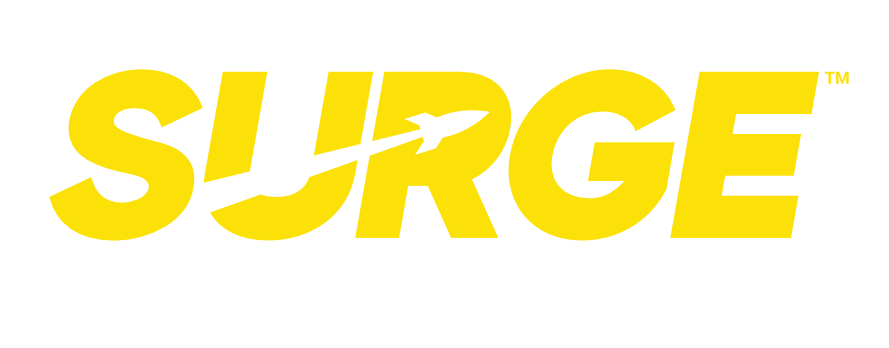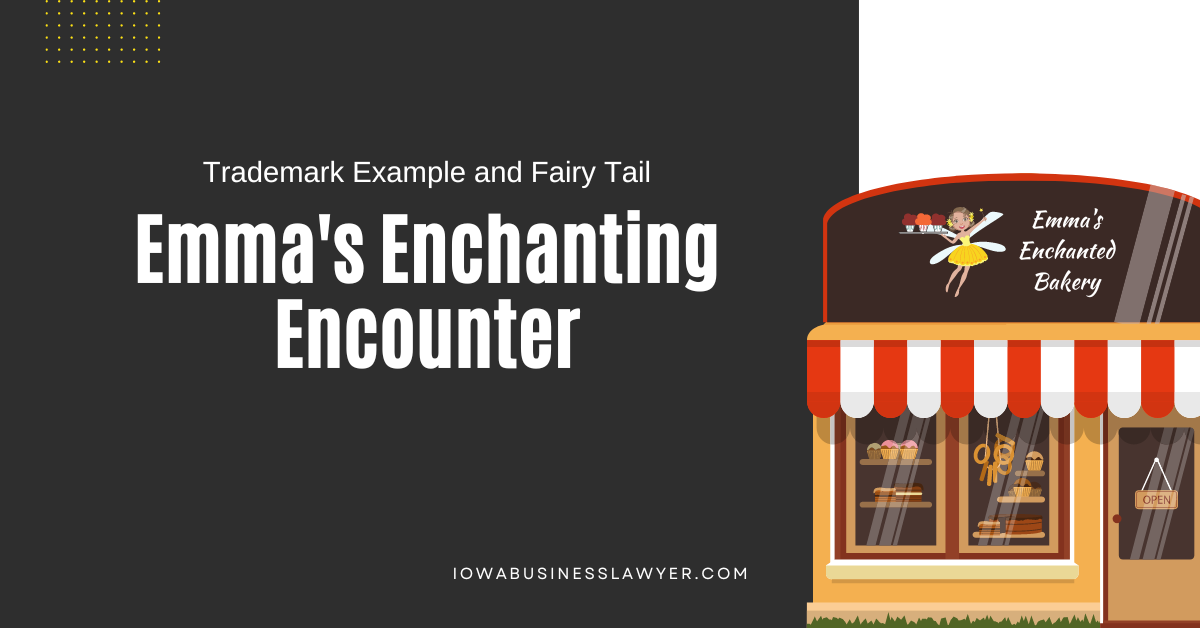Emma’s Enchanting Encounter: The Tale of a Trademark Triumph
Once upon a time in a quaint little town, there lived a passionate baker named Emma. Emma had spent years perfecting her recipes and dreaming of opening her bakery. After countless hours of hard work, she finally opened “Emma’s Enchanted Bakery,” a magical little shop known for its delightful pastries and enchanting atmosphere.
Emma’s small business quickly became popular in town, and customers flocked to taste her delicious creations. Emma couldn’t have been happier with her newfound success. Her bakery’s name and logo, featuring a whimsical fairy holding a tray of cupcakes, were a perfect reflection of the enchanting experience she aimed to offer her customers.
One day, Emma’s friend made a suggestion. “Why don’t you protect your business brand,” her friend who knew trademark law explained, “by registering trademarks for your name and logo?” Initially, Emma hesitated, wondering if it was necessary for a small-town baker.
But, as due diligence, Emma thought she should, as a small business owner, do research and find a trademark lawyer for legal advice. The consultation with an intellectual property attorney made her decision clear and simple. She was convinced of the benefits of getting a trademark and went through the process of registering trademarks for her small business.
A few years later, Emma’s Enchanted Bakery expanded to several locations across the state and her fame spread beyond the town’s borders. But one day, she received a call from another concerned friend who had come across a new bakery in a neighboring city called “Emma’s Magical Bakery.” Mirroring that of Emma’s own trademark, this new establishment had a suspiciously similar logo, featuring a fairy holding a tray of baked goods, and business name.
Emma was frustrated. Customers could be confused and she could lose business over this! So she decided to contact her trademark attorney, who took swift legal action against the copycat bakery. Thanks to her foresight in registering her trademark, Emma had a strong legal basis for her claim. The court ruled in her favor, and the infringing bakery had to change its name and logo, as well as pay Emma for the damages and lost income.
Relieved and grateful, Emma returned to her business, focusing on creating more delightful confections and expanding her enchanting bakery empire. As her business continued to grow, she encountered a few more instances of trademark infringement, but each time, her registered trademark provided protection for her intellectual property brand assets.
Emma’s decision to register her trademark not only protected her brand but also ensured that her customers could easily recognize the authentic Emma’s Enchanted Bakery. The success of her business was a testament to her hard work and wise decision to safeguard her intellectual property.
And so, Emma’s small business continued to flourish, spreading joy and delicious treats to all who visited. With its trademark providing brand protection, there will be none like it in all the land. Her shop’s magical trademarked branding will continue to shine brightly as a beacon of authenticity.
The moral of the story:
We explored the lasting benefits of trademark registration for businesses, emphasizing the importance of protecting a brand’s identity and securing exclusive rights to that identity. The trademark story about Emma’s Enchanted Bakery illustrates how investing in intellectual property protection can safeguard a business’ reputation and contribute to its long-term success.
Should I register my trademark?
Small business owners should consider the following factors when deciding whether to register a trademark or not:
- Business expansion plans: If you intend to make a big investment in your brand, for example, a storefront sign and vehicle wraps, expand your business beyond the local area, or offer your products or services online, registering a trademark can help protect your brand in a broader market.
- Unique branding elements: If your business has a unique name, logo, or slogan that distinguishes it from competitors, it may be valuable to register a trademark to protect these distinctive elements and prevent others from using them.
- Investment in brand recognition: If you invested significant time, effort, and resources into building your brand’s reputation, a registered trademark can protect that investment by ensuring your business has exclusive rights to your brand and does not get left behind by the competition. As of 2021, there were 2.6 million active trademark applications in the U.S. Your competitor could already be one of them.
- Long-term goals: If you have long-term goals that involve franchising, licensing, or partnering with other companies, a registered trademark can enhance your business’ credibility and value in these negotiations.
Ultimately, the decision to register a trademark should be based on the business owner’s goals, the distinctiveness of their branding elements, and the potential benefits of having exclusive rights to use and protect their brand. Consulting with an intellectual property attorney can provide further guidance on whether trademark registration is the right choice for a specific small business.
Last but not least, getting your business trademark registered can be made easy with the help of a trademark lawyer. With our trademark services, you can trust that you’ll only be spending what you need to get your brand assets protected. Because our goal is to help small businesses succeed and remove obstacles to growth, we promise to give you clear, simple, and honest advice.
We’ll help you
- Decide if you need a trademark
- Decide how to register for one including your eligibility and class type
- Interact with the USPTO on your behalf
- Ensure that you get a successful trademark registration
Get a free consultation when you inquire about how trademark applications can be made simple. Contact the Iowa Business Lawyer for more information.


